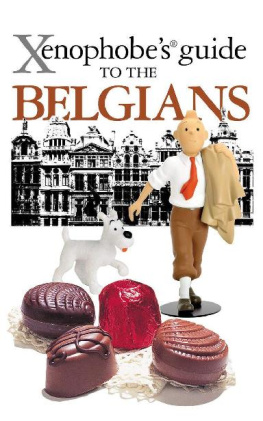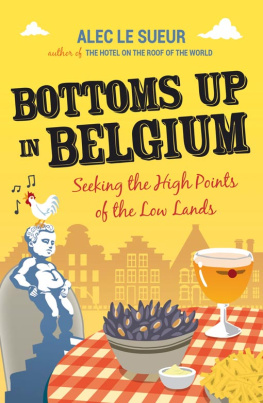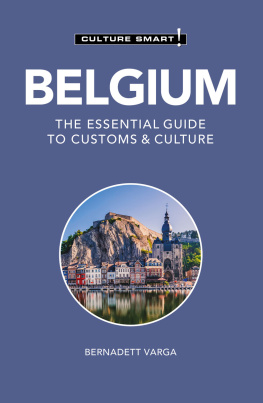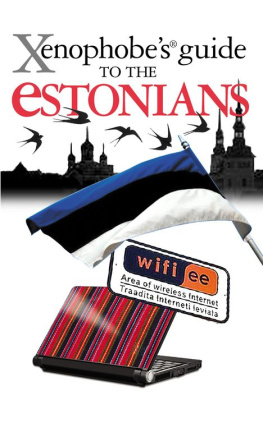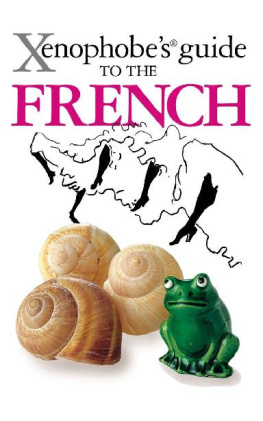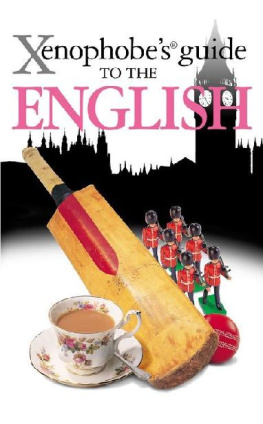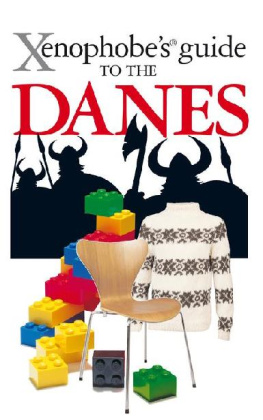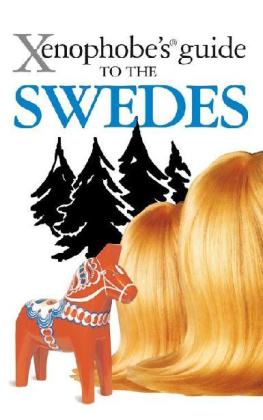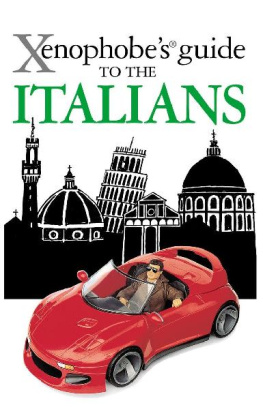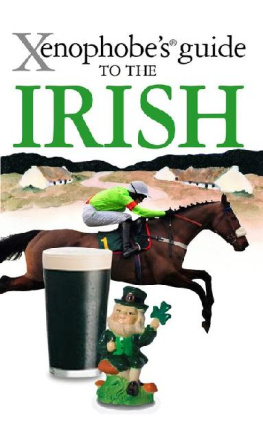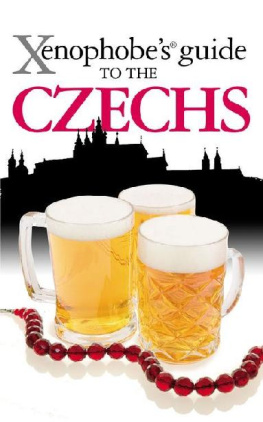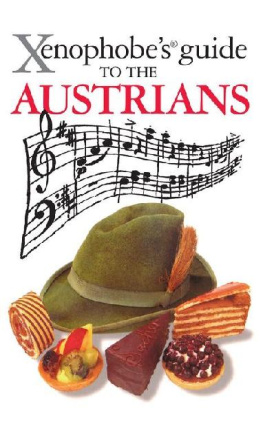Belgium: persons - The Xenophobes Guide to the Belgians
Here you can read online Belgium: persons - The Xenophobes Guide to the Belgians full text of the book (entire story) in english for free. Download pdf and epub, get meaning, cover and reviews about this ebook. City: London, year: 2016, publisher: Xenophobes Guides;Oval Projects, genre: Detective and thriller. Description of the work, (preface) as well as reviews are available. Best literature library LitArk.com created for fans of good reading and offers a wide selection of genres:
Romance novel
Science fiction
Adventure
Detective
Science
History
Home and family
Prose
Art
Politics
Computer
Non-fiction
Religion
Business
Children
Humor
Choose a favorite category and find really read worthwhile books. Enjoy immersion in the world of imagination, feel the emotions of the characters or learn something new for yourself, make an fascinating discovery.
- Book:The Xenophobes Guide to the Belgians
- Author:
- Publisher:Xenophobes Guides;Oval Projects
- Genre:
- Year:2016
- City:London
- Rating:3 / 5
- Favourites:Add to favourites
- Your mark:
- 60
- 1
- 2
- 3
- 4
- 5
The Xenophobes Guide to the Belgians: summary, description and annotation
We offer to read an annotation, description, summary or preface (depends on what the author of the book "The Xenophobes Guide to the Belgians" wrote himself). If you haven't found the necessary information about the book — write in the comments, we will try to find it.
The Xenophobes Guide to the Belgians — read online for free the complete book (whole text) full work
Below is the text of the book, divided by pages. System saving the place of the last page read, allows you to conveniently read the book "The Xenophobes Guide to the Belgians" online for free, without having to search again every time where you left off. Put a bookmark, and you can go to the page where you finished reading at any time.
Font size:
Interval:
Bookmark:


The Belgian population is 10 million, compared with 5 million Danes, 7 million Swiss, 16 million Dutch, 47 million Spanish, 53 million English, 64 million French, 82 million Germans and 313 million Americans.
The population is divided into two main language groups with about 6 million Dutch speakers and 4 million French speakers (plus 67,000 German speakers living on the German border). Brussels upsets this neat division by being a primarily French-speaking pocket within Dutch-speaking Flemish territory.
Belgium is about a quarter of the size of England, and could fit into France 18 times.
Belgians are not publicly fervent about their nationality . In an opinion poll it was found that 60% of Belgians wish they had been born elsewhere. Their national anthem goes on about la Patrie (which is made to rhyme with O Belgique! O Mre chrie ), but few Belgians can get beyond the first verse. One prospective Belgian prime minister, when asked if he knew the words, began singing the Marseillaise .
In an opinion poll it was found that 60% of Belgians wish they had been born elsewhere.
The fact that Brussels is the capital of Belgium is a good thing for the Belgians, because the citys status as the capital of Europe means that people all over the world have at last been able to place their country (roughly) on the map. This wont necessarily mean that foreigners will know what language the Belgians speak, but its a start.
For want of anything particular to say about Belgium and the Belgians, foreigners have saddled the nation with the reputation of being dull. Its a hard label to shake off: it is like being asked by someone predisposed to boredom: Cant you say anything interesting ? Belgians know this feeling only too well. Theyve tried.
A curious and endearing characteristic of the Belgians is that they do not rise to the bait that this labelling imposes. Let other nations crow: the cock that crows loudest will be the first for the pot.
Reports published by the United Nations have rated Belgium the best place to live in the European Union, and the fifth most prosperous country in the world.
But those who scoff should beware. Belgian things are becoming fashionable, and not just the chocolates and the beer. Visitors to Belgium are discovering with shocked surprise the genius of Belgian cuisine, the genuine welcome of Belgian hospitality, the gem-like brilliance of Flemish art, even the odd chteau tucked away in the countryside. The group of fashion designers known as The Antwerp Six have risen to international stardom and the fashion department of the Antwerp Academy of Fine Arts continues to produce a stream of head-turning talent. Other nations are beginning to see that, by the standards of 21st-century Europe, the Belgians in their quiet, undemonstrative way seem to have got many things just about right.
As if to reinforce this notion, reports published by the United Nations have rated Belgium the best place to live in the European Union, and the fifth most prosperous country in the world (after Norway, Australia, Canada and Sweden), facts which came as a shock to the Belgians who promptly devoted a large quantity of printers ink to explaining why such accolades are not justified.
The Belgians lack of fervour for their country may be in part because the Belgian nation is so new. It achieved its nationhood in 1830, after centuries of occupation and invasion by the Romans, the French, the Burgundians, the Spanish, the Austrians, and the Dutch.
Independence was won through a revolution triggered by an opera.
Independence was won via a revolution triggered by an opera. Stirred by the sentiments of Aubers La Muette de Portici (The Dumb Girl of Portici) the opera-goers rushed into the streets of Brussels in their finery and raised the national flag over the town hall. After a few skirmishes, the occupying Dutch troops fled and the rebels stormed the Royal Palace, where they celebrated the end of Dutch rule by crowning a bust of the King with a Dutch cheese, and wandering through his apartments admiring his wardrobe. These events may lack the heart-stopping panache of the French Revolution, but the Belgians have always opted for moderation at the expense of a place in the history books. And by and large this attitude seems to have served them pretty well.
Belgian-ness is not, therefore, deeply rooted in history. Unlike other similarly new nations, such as Germany and Italy, Belgium is not defined by language either, since it has two main languages: French and Dutch (formerly called Flemish but now referred to as Dutch by Belgians who speak it).
The average Belgian may look modestly prosperous and content, if a little careworn with the stress of so much comfortable domesticity.
The average Belgian may look modestly prosperous and content, if a little careworn with the stress of so much comfortable domesticity, the plethora of consumer goods, and all the excellent food. But barely concealed beneath the surface of a placid country that could (if it chose to) see its lack of national chauvinism as a virtue, lurk strong loyalties to, and bitter antipathies between, the two main language groups.
During the 1990s Belgium was virtually divided into two federal states, Dutch-speaking Flanders and French-speaking Wallonia, stitched together by national government and the capital city a mainly French-speaking bubble surrounded by Flemish territory.
Il ny a plus de Belges , is a common complaint. Il ny a que des Wallons et des Flamands . (There arent any Belgians any more. There are only Walloons and Flemings.) Today nationalism refers to a fervour not for Belgium, but for Flanders or Wallonia. Emotions can run very high and result in unedifying spats between the two communities, especially at the muddy interface along the border. Their respective emblems, the Walloons cock and the Flemish lion, could well be pictured trying to claw each others eyes out. At times the very future of Belgium seems in doubt. Were the only country that wonders if it even exists, claims Belgian poet Daniel De Bruycker. It is often said that there are only two slender threads holding the nation together: the royal family and the Red Devils (the national football team).
The Walloons cock and the Flemish lion could well be pictured trying to claw each others eyes out.
As politicians from both communities exploit the antagonisms between the Dutch and French speakers on the principle of divide and rule, calling yourself Belgian (as opposed to Flemish or Walloon) has itself become something of a political statement. Car stickers proclaiming Belge, et fier de ltre (Belgian, and proud of it) are not some rather desperate bid to shake off a stigma, but an expression of the desire to see Belgian nationhood preserved.
The Belgians are rather too ready to belittle themselves as a nation. They tend to describe their country as being flat and small in fact, it is neither that small, nor that flat, and they seem to expect an insult. Even the towering 19th-century King of the Belgians, Leopold II, scourge of the Congo, once famously dismissed his nation as petit pays, petites gens (small country, small-minded people).
Despite the many good things that have been said and written about the Belgians in recent years, a certain melancholia and lack of confidence still hang over the nation. They have the best intentions, but something always seems to get in the way: economic problems, ill-health , political corruption, the Flemings, the Walloons, the French or just being Belgian.
Font size:
Interval:
Bookmark:
Similar books «The Xenophobes Guide to the Belgians»
Look at similar books to The Xenophobes Guide to the Belgians. We have selected literature similar in name and meaning in the hope of providing readers with more options to find new, interesting, not yet read works.
Discussion, reviews of the book The Xenophobes Guide to the Belgians and just readers' own opinions. Leave your comments, write what you think about the work, its meaning or the main characters. Specify what exactly you liked and what you didn't like, and why you think so.

